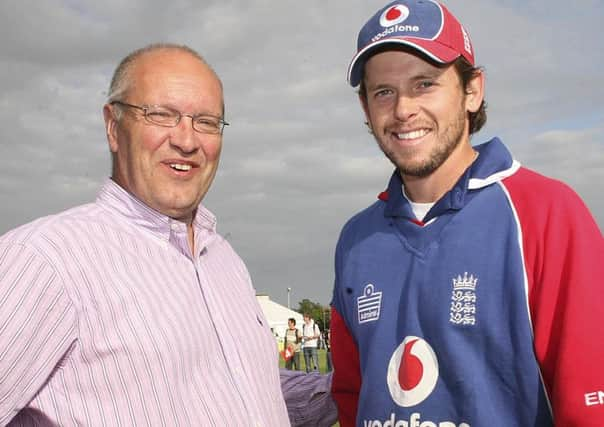Austin Hunter: A senior figure in NI, but one who treated all equally


Mr Hunter, who edited the News Letter from 2004 to 2006, died on Saturday after being knocked down in Bahrain. He was 64.
Darwin Templeton, who succeeded Mr Hunter as editor, said that Mr Hunter would always offer advice “and he was always worth listening to”.
Advertisement
Hide AdAdvertisement
Hide AdSpeaking on BBC Radio Ulster’s Sunday News, Mr Templeton recalled meeting Mr Hunter as a relatively junior reporter but said that “he always treated you as if you were the chief correspondent”.
He added: “He just enjoyed people. When the business was done and when the professional side of things was set aside, he always had time for the person.”
Rankin Armstrong, who took over from Mr Templeton and served in the post until last year, said: “I worked closely with Austin during his time as editor and I had great respect for him as a journalist and manager.
“He had a wealth of experience in the media and made some strong editorial decisions which helped increase the circulation of the News Letter in that period.
Advertisement
Hide AdAdvertisement
Hide Ad“Austin always supported his journalists; he was a great ambassador for the paper and was very proud of his time there.”
Veteran News Letter journalist Billy Kennedy said he was deeply saddened by the death.
“I first met Austin back in 1975 when he was a young reporter on the Strabane Weekly News, under the editorship of the late Billy Fyffe. I was doing a weekly series ‘Your Town’ across Northern Ireland for the News Letter and Austin gave me a full insight into life in Strabane, a town that was deeply scarred by the ‘Troubles’ at the time.
“Austin was a very knowledgeable person, grounded in his capacity as a journalist with a natural appetite for news. He always remained loyal to his rural WWest Tyrone roots.”
Advertisement
Hide AdAdvertisement
Hide AdMr Kennedy added that Mr Hunter had earned the total respect and support of the journalists working under him”.
Deric Henderson, the former Ireland editor of the Press Association, who began his career in Omagh with the Tyrone Constitution, the sister paper of the Strabane Weekly News where Mr Hunter started out, said he was shocked by the tragic death of his former colleague.
He said Mr Hunter had worked through some of the most difficult days of the troubles as an excellent, well-connected reporter with the BBC.
“He was a fine, fine journalist, a terrific communicator, trusted and respected by all of us within, as well as outside an extremely stressful and challenging business.
Advertisement
Hide AdAdvertisement
Hide Ad“The Omagh bomb was a classic case, especially the fall-out from that atrocity, when he was working under the stewardship of the Chief Constable Ronnie Flanagan.
“That wasn’t an easy time in his life, but he never once refused to take my call or raise his voice. He was always measured, respectful and courteous. He hadn’t an enemy in the world, and given what he came through it’s such a shame his life ended this way and that will be unable to share the rest of his years with the family he adored as well as watching hockey and cricket, two sports which he loved.”
BBC Northern Ireland director Peter Johnston said that Mr Hunter “demonstrated his great skill as a journalist on the frontline of reporting of some of the toughest times in Northern Ireland”, adding that “throughout his BBC career he also gave generously of his time and knowledge to encourage others”.